New alternative weeding techniques
The “new alternative weeding techniques” theme covers new alternative weeding techniques that make it possible to eliminate or even reduce the use of chemical products on crops.
Existing equipment and infrastructure
Existing original and structuring means of investigation can be mobilized.
Our partners
Mode-shifting reverberation chamber
The Institut Pascal laboratory at Clermont-Auvergne University, for example, uses this mode-shifting reverberation chamber to test different electromagnetic systems for destroying plants in a controlled environment totally protected from external disturbances.
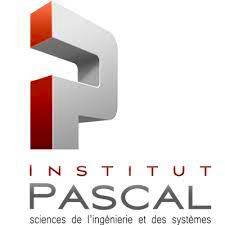
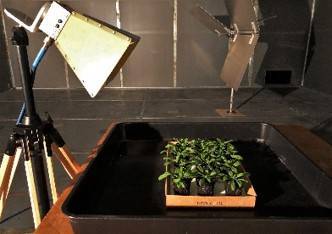
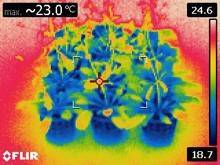
Modeshuffling chamber for electromagnetic field testing in a controlled and reproducible environment
The IRHS Laboratory in Angers (UMR INRAE-University of Angers) is contributing its expertise to characterize the biological responses of plants in this controlled environment, when subjected to various destructive actions (electromagnetic waves at different frequencies or any other type of source).
Semi-anechoic chamber INRAE TSCF
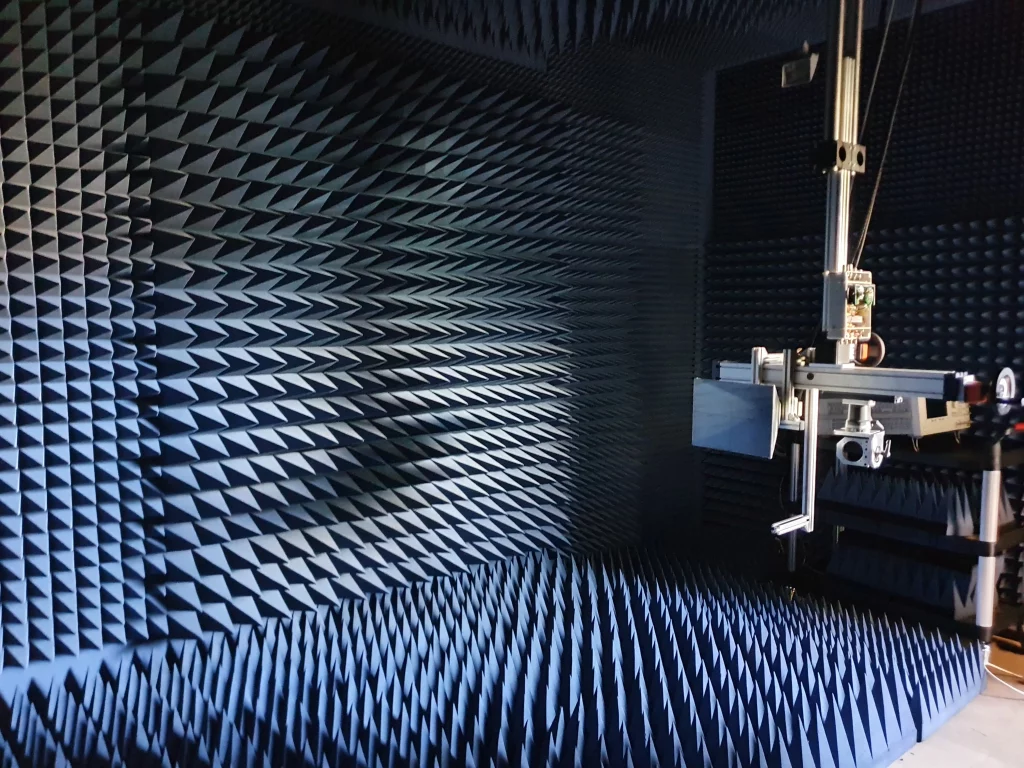
The TSCF Research Unit has an anechoic chamber on its site at Les Cézeaux (Aubière), enabling it to carry out EMC tests by measuring radiated electromagnetic disturbances.
On the Montoldre site
The AgroTechnoPôle has a number of agricultural plots on its privileged site in Montoldre (03). These plots were also used in METRICS’ national ROSE challenge and European ACRE challenge, dedicated to characterizing robotized alternative weeding solutions.
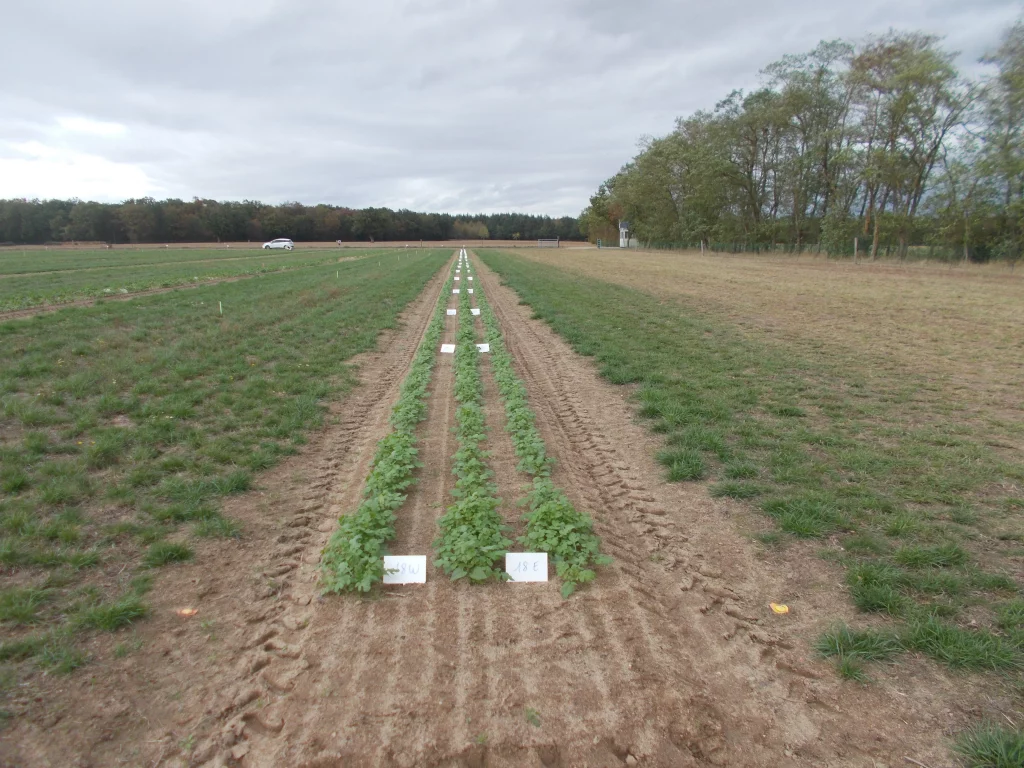
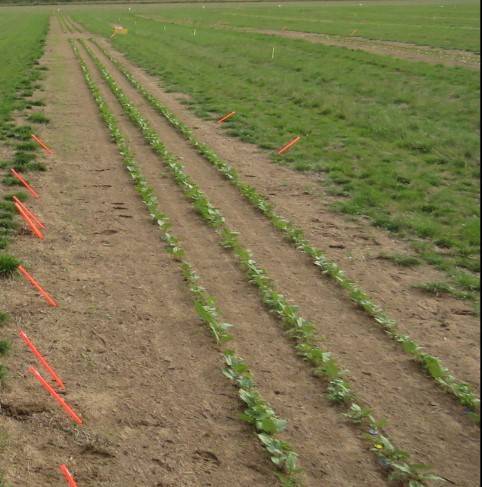
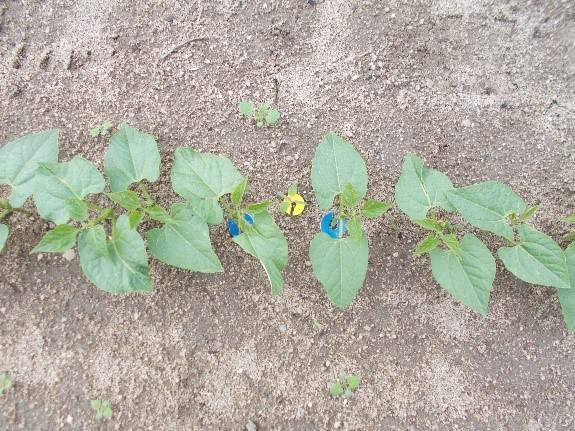
Experimental plots dedicated to alternative weed control on the Montoldre site (03)
New equipment and infrastructure
New structuring facilities and infrastructures
This unique and differentiating equipment requires considerable technical and financial investment. They will serve as a support for all interested parties.
Section 5: Qualification bench for alternative weeding methods
Agro-ecological imperatives call for new weed control practices to eliminate weeds in the inter-row, and increasingly within the inter-row itself.
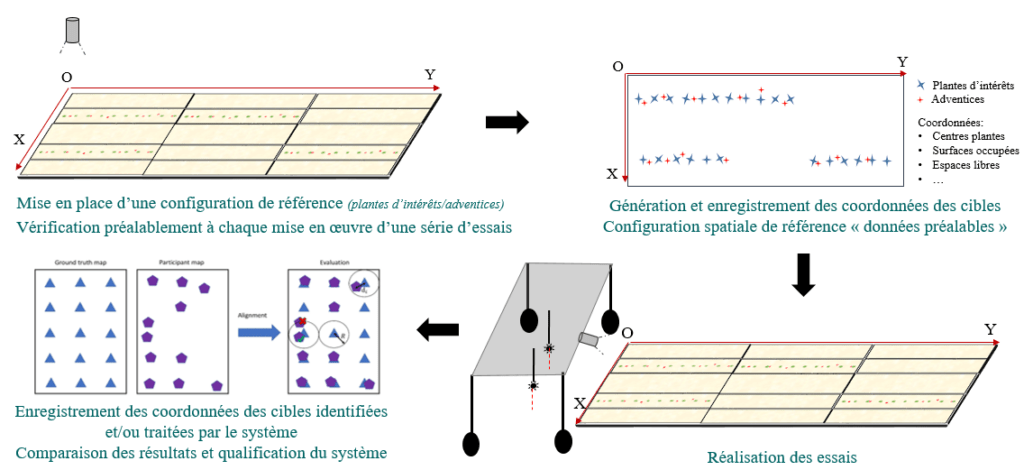
The AgroTechnoPôle platform aims to make an active contribution to these objectives by setting up a research and testing facility to characterize new alternative solutions for weeding field crops.
The aim will be to provide manufacturers of weeding machines (robotized or not) or weeding system equipment with a first level of qualification of the performance of their Perception, Decision and Action system in terms of precision and speed of execution in a totally controlled environment.
The bench is designed to adapt to all Perception/Decision systems (using AI modules or not) and all types of localized actions (mechanical, localized chemical, laser, etc.).
This approach will make it possible to qualify performance under artificial conditions that are totally controlled and reproducible. The research and test bench will facilitate fine-tuning and ensure optimal operation of the system under test before its implementation in real-life field conditions. For this last stage, the AgroTechnoPôle – UR TSCF is already in a position to contribute methods and know-how, based on its work in organizing the ROSE and METRICS Challenges (see previous point).